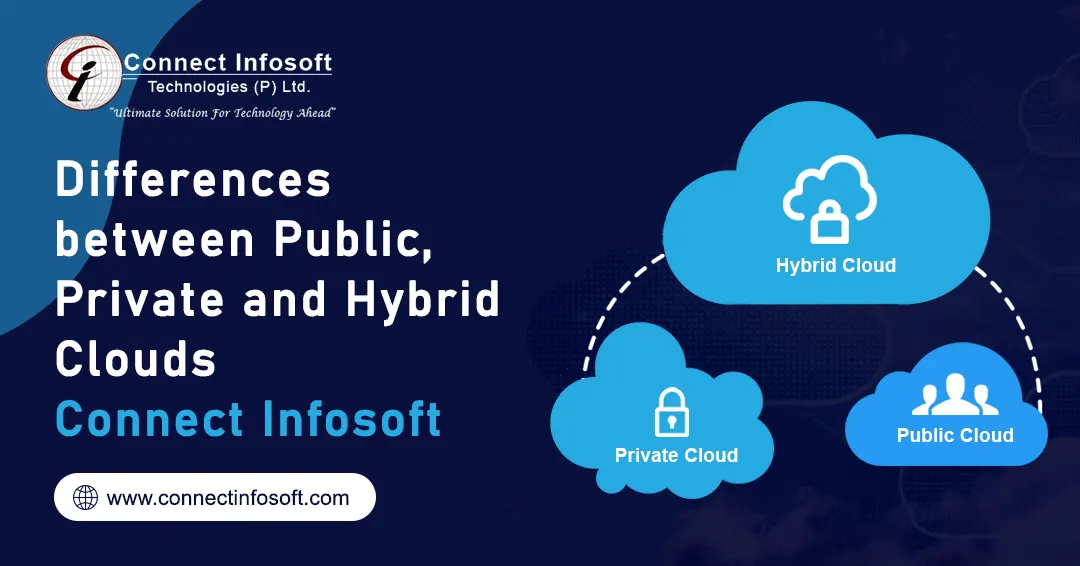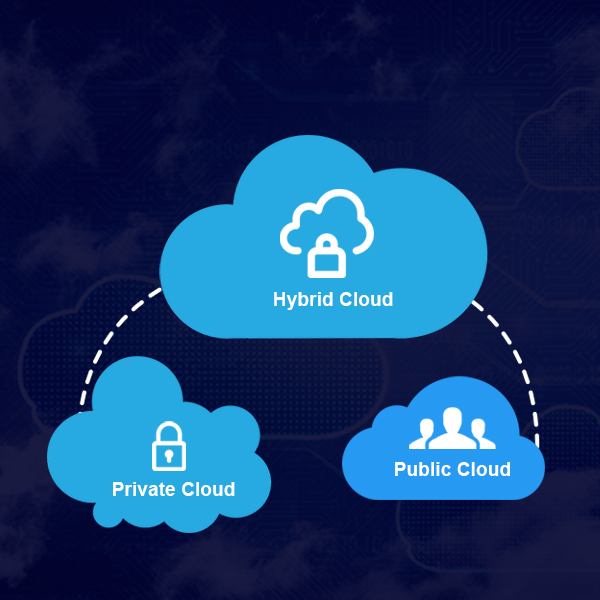Differences between Public, Private and Hybrid Clouds | Connect Infosoft

Cloud computing is a powerful technology that provides a range of services such as data storage, software applications, and virtual servers. One of the key decisions to make when choosing a cloud solution is to decide which type of cloud is the best option for your needs – public, private, or hybrid. All three types have advantages and disadvantages and there is no one-size-fits-all approach to cloud adoption.
Public Cloud:
A public cloud is owned and managed by a third-party cloud service provider such as Google Cloud Platform, Microsoft Azure, IBM Cloud Services, or Adobe Creative Cloud. With a public cloud, your data and applications are stored in the cloud provider’s data center, providing you with access to the latest software and technologies. The benefits of using a public cloud include scalability, cost savings, and convenience. Public clouds are best suited for companies that don’t need a high level of security or control over their data and applications.
Private Cloud:
A private cloud is dedicated to one organization only and usually requires the use of its own IT infrastructure. Private clouds provide the highest level of security, allowing organizations to customize the cloud environment to meet their specific needs. In addition to being more secure than public clouds, private clouds also offer better performance, reliability, and flexibility. They are best suited for organizations that need a higher level of control over their data and applications, as well as companies that require a large amount of storage space.
Hybrid Cloud:
A hybrid cloud is a combination of both public and private clouds. This type of cloud allows organizations to leverage the cost savings and scalability of public clouds while maintaining the control and security of private clouds. Hybrid clouds are ideal for organizations that require a combination of the two – such as those that need to store sensitive data in a private cloud but use public clouds for other tasks like web hosting or development.
In Conclusion, choosing the right type of cloud for your organization can be a difficult task. It’s important to take into consideration your security requirements, budget constraints, and scalability needs when making the decision. By understanding the differences between public, private, and hybrid clouds, you can make an informed decision about which type of cloud will best suit your organization’s needs.


